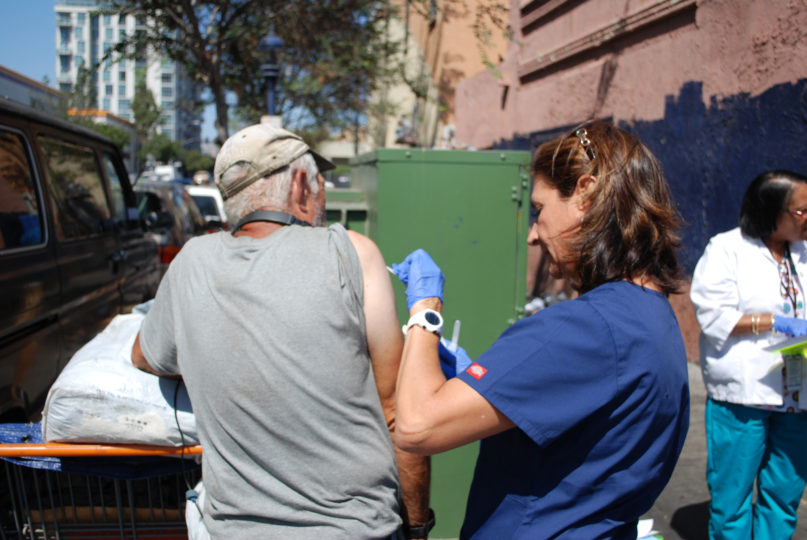SAN DIEGO–The local public health emergency for the ongoing hepatitis A outbreak was extended again for another two weeks Monday by the San Diego County Board of Supervisors.
The Board is required to review the need for continuing the emergency, which was declared on Sept. 1, every 14 days.
There have been 544 cases of hepatitis A associated with the outbreak as of Nov. 6, with 372 people requiring hospitalization and 20 deaths.
The County’s public health services and community partners have given 90,735 vaccinations, including 76,982 to at-risk populations as part of the efforts to halt the outbreak.
As the number of new cases appears to be slowing down, local health officials are encouraging men who have sex with men (MSM) to get the hepatitis A vaccine in an effort to prevent an increase in cases among that population. Michigan, New York City and Colorado have all seen a recent outbreak of hepatitis A among the MSM population.
“We’re broadening our ongoing efforts to reach the MSM community because this is an area where the outbreak could potentially spread,” said Wilma Wooten, M.D., M.P.H., County public health officer. “We are encouraging people to get vaccinated to protect both themselves and their close contacts.”
The County and the San Diego LGBT Community Center are partnering to provide free hepatitis A vaccinations and flu shots to any member of the public. One event was held in October, one is taking place today until 6 p.m. and two more are scheduled on November 13 and 22 from 3 to 6 p.m. The LGBT Center is located at 3909 Centre St. in San Diego.
Locally, there have been 13 cases of hepatitis A in MSM in 2017, higher than the usual one to two cases a year, but not disproportionate to the overall number of cases in the current outbreak.
Hepatitis A is most commonly spread from person to person through the fecal-oral route. Symptoms of hepatitis A include jaundice (yellowing of the skin and eyes), fever, fatigue, loss of appetite, nausea, vomiting, abdominal pain, dark urine, and light-colored stools. Symptoms usually appear over a number of days and last less than two months. However, some people can be ill for as long as six months. Hepatitis A can sometimes cause liver failure and even death.





